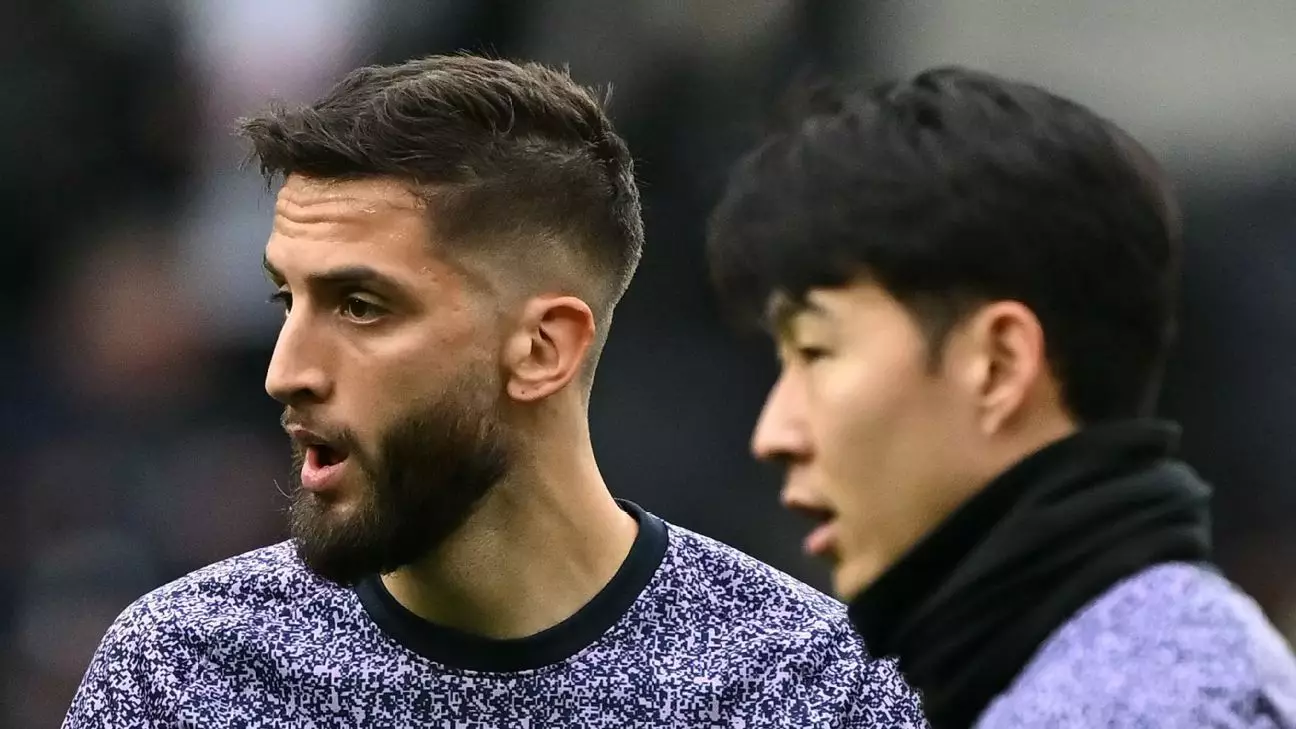In recent football news, controversy arose following an incident involving Tottenham midfielder Rodrigo Bentancur, who was penalized for making racially insensitive comments during a television interview in Uruguay. During the segment on the show “Por La Camiseta,” host Rafa Cotelo inquired about getting a player’s shirt, prompting Bentancur to respond in a manner that sparked outrage. His comment about Son Heung-Min, suggesting that “all look the same,” was met with backlash, leading to a seven-game suspension and a hefty £100,000 fine imposed by the Football Association (FA). The situation has raised questions about the implications of such words—a reflection of societal intolerance coupled with the responsibility of public figures to promote inclusivity.
Football, as a major global sport, attracts immense scrutiny and serves as a platform where societal issues often intersect with entertainment. The incident involving Bentancur demonstrates the critical need for accountability in sports. However, it also raises questions about the balance between punishment and rehabilitation. Coach Ange Postecoglou has voiced the need for a measured approach, emphasizing that while mistakes were made, the path to improvement requires both acknowledgment of wrongdoings and the opportunity for learning. Postecoglou’s perspective signals a broader conversation about the differences between condemning individuals and fostering environments that promote growth and education.
The consequences of Bentancur’s actions result not only in a personal loss but also reverberate throughout his team, as Tottenham seeks to navigate the ensuing challenges. As Bentancur’s suspension extends into the holiday season, it indirectly affects the team’s strategic choices and match preparations. Spurs have built a case for appealing the severity of the punishment, arguing that while the initial error must be addressed, the ramifications feel disproportionate. The club perceives the action against Bentancur as harsher than necessary, potentially impeding his growth as a responsible athlete and member of society.
What becomes vital in this discussion is the ability to encourage redemption in individuals who err. Many people, including Postecoglou, argue that the ethos surrounding mistakes should not include punitive measures that hinder learning. The reality presented by Postecoglou—that he too has made errors and has learned from them—underscores a shared human experience. This assertion highlights an essential dimension of leadership in sports: creating a mentorship culture where players can learn about the larger implications of their actions, thereby evolving into more conscientious individuals both on and off the pitch.
Beyond the Punishment: The Larger Context
While the FA’s guidelines stipulate minimum punishments for racial misconduct, the wider implications must spark a dialogue about how society views punishment versus education. An overly harsh approach can lead to a culture of fear, where individuals may hesitate to admit their faults or seek help, thus stymying their personal and professional development. In that vein, Postecoglou’s insistence on education as a tool for meaningful change reveals a progressive attitude in a world often quick to vilify.
The saga surrounding Rodrigo Bentancur’s comments invites a deeper examination of accountability, the nature of punishment, and the potential for rehabilitation within sports. As the appeal unfolds and discussions around racism and accountability continue, it becomes clear that fostering a culture that prioritizes education and redemption is essential for real progress. Bentancur’s journey is a case study in the complexities of human error, societal expectations, and the potential for growth. As the narrative of justice and understanding plays out, it is crucial that we remain focused on the transformative power of learning from mistakes, rather than resorting to drastic measures that may isolate individuals rather than integrate them back into a more educated and tolerant culture.

